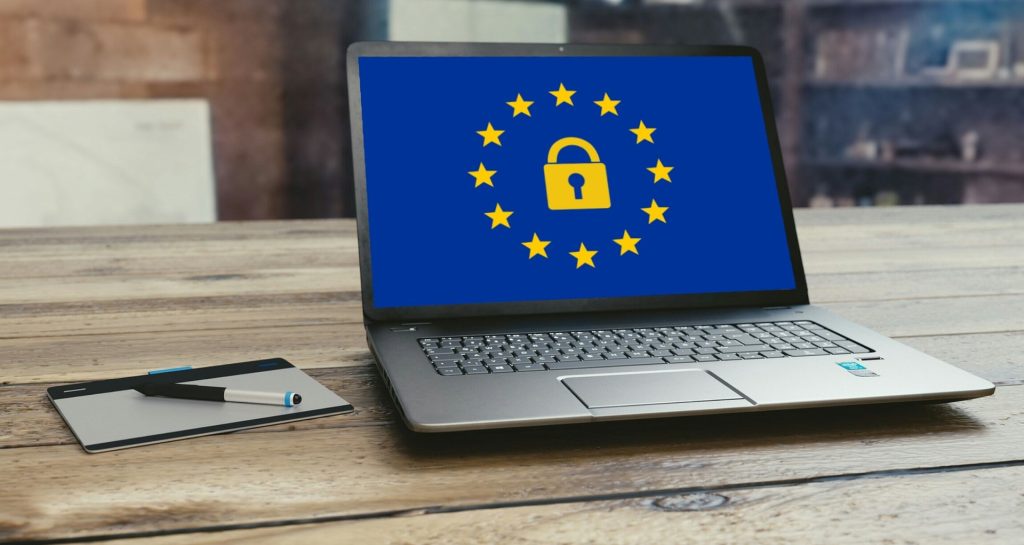Table of Contents
-
- Introduction
- Understanding the Key Principles of GDPR for Small Businesses
- Steps to Ensure GDPR Compliance in Your Small Business
- The Impact of GDPR on Small Business Marketing Strategies
- GDPR and Data Protection: Safeguarding Your Small Business
- Navigating GDPR: Practical Tips for Small Business Owners
- Conclusion
Understanding GDPR: Navigating Compliance for Small Businesses.
Introduction
The General Data Protection Regulation (GDPR) is a comprehensive data protection law that affects businesses operating within the European Union (EU) or processing personal data of EU residents. It imposes certain obligations and requirements on businesses regarding the collection, storage, and processing of personal data. This introduction provides an overview of how GDPR impacts small businesses.
Understanding the Key Principles of GDPR for Small Businesses
If you own a small business, you may have heard about the General Data Protection Regulation (GDPR) and wondered how it applies to you. GDPR is a regulation that was implemented by the European Union (EU) in 2018 to protect the privacy and personal data of EU citizens. While it may seem like something that only affects large corporations, GDPR actually has implications for small businesses as well. In this article, we will explore the key principles of GDPR and how they impact small businesses.
One of the fundamental principles of GDPR is the concept of consent. Under GDPR, businesses are required to obtain explicit consent from individuals before collecting and processing their personal data. This means that you cannot simply collect personal information from your customers without their knowledge or consent. Instead, you must clearly explain why you need their data and how you will use it. For small businesses, this means updating your privacy policy and ensuring that you have a system in place to obtain consent from your customers.
Another important principle of GDPR is the right to access and rectify personal data. This means that individuals have the right to request access to the personal data that you hold about them and to have any inaccuracies corrected. As a small business owner, you need to be prepared to handle these requests. This may involve setting up a process for individuals to make these requests and ensuring that you have the necessary systems in place to locate and rectify personal data.
GDPR also introduces the concept of data minimization. This means that businesses should only collect and process the personal data that is necessary for the purpose for which it was collected. As a small business owner, it is important to review the personal data that you collect and ensure that you are only collecting what is necessary. This may involve updating your data collection processes and implementing measures to securely store and protect the data that you do collect.
One of the most significant aspects of GDPR is the requirement for businesses to implement appropriate security measures to protect personal data. This includes measures such as encryption, access controls, and regular data backups. As a small business owner, it is important to assess the security measures that you currently have in place and determine if they are sufficient to meet the requirements of GDPR. If not, you may need to invest in additional security measures to ensure that you are adequately protecting the personal data of your customers.
Finally, GDPR also introduces the concept of data breach notification. This means that if you experience a data breach that is likely to result in a risk to the rights and freedoms of individuals, you must notify the relevant supervisory authority and affected individuals within 72 hours. As a small business owner, it is important to have a plan in place for responding to data breaches and to ensure that you are able to meet the notification requirements of GDPR.
In conclusion, GDPR has implications for small businesses and it is important to understand the key principles and how they impact your business. By obtaining consent, providing access to personal data, practicing data minimization, implementing appropriate security measures, and having a plan for data breach notification, you can ensure that your small business is compliant with GDPR and protecting the privacy and personal data of your customers.
Steps to Ensure GDPR Compliance in Your Small Business
If you own a small business, you may be wondering how the General Data Protection Regulation (GDPR) affects you. The GDPR is a regulation that was implemented by the European Union (EU) in 2018 to protect the personal data of EU citizens. While it may seem like something that only applies to large corporations, the truth is that small businesses are also subject to the GDPR. In this article, we will discuss the steps you can take to ensure GDPR compliance in your small business.
The first step in ensuring GDPR compliance is to understand what personal data is and how it is defined under the regulation. Personal data refers to any information that can be used to identify an individual, such as their name, address, email address, or IP address. It is important to be aware of the types of personal data your business collects and processes, as this will determine your obligations under the GDPR.
Once you have a clear understanding of the personal data your business handles, the next step is to conduct a data audit. This involves taking stock of all the personal data you collect, where it is stored, who has access to it, and how it is used. This will help you identify any potential risks or vulnerabilities in your data processing practices and allow you to take appropriate measures to mitigate them.
One of the key principles of the GDPR is the concept of data minimization. This means that you should only collect and process the personal data that is necessary for the purpose for which it was collected. To ensure compliance with this principle, you should review your data collection practices and only collect the minimum amount of personal data required to fulfill your business objectives.
Another important step in achieving GDPR compliance is obtaining consent from individuals before collecting their personal data. Consent must be freely given, specific, informed, and unambiguous. This means that you cannot use pre-ticked boxes or assume consent based on silence or inactivity. You must also provide individuals with clear and concise information about how their data will be used and give them the option to withdraw their consent at any time.
In addition to obtaining consent, you must also ensure that you have appropriate security measures in place to protect the personal data you collect. This includes implementing technical and organizational measures to prevent unauthorized access, loss, or destruction of personal data. You should also have a data breach response plan in place to effectively respond to and mitigate any breaches that may occur.
Lastly, it is important to document your data processing activities and keep records of your compliance efforts. This includes maintaining a record of your data processing activities, documenting any data protection impact assessments you have conducted, and keeping a record of any data breaches and the actions taken to address them. These records will not only help you demonstrate your compliance with the GDPR but also assist you in responding to any inquiries or investigations by data protection authorities.
In conclusion, the GDPR does impact small businesses, and it is important to take steps to ensure compliance. By understanding the personal data you collect, conducting a data audit, practicing data minimization, obtaining consent, implementing security measures, and documenting your compliance efforts, you can protect the personal data of your customers and avoid potential penalties under the GDPR. Remember, compliance with the GDPR is an ongoing process, and it is important to regularly review and update your data protection practices to stay in line with the regulation.
The Impact of GDPR on Small Business Marketing Strategies
If you own a small business, you may have heard about the General Data Protection Regulation (GDPR) and wondered how it affects you. GDPR is a regulation that was implemented by the European Union (EU) in 2018 to protect the privacy and personal data of EU citizens. While it may seem like something that only applies to large corporations or businesses operating in the EU, GDPR actually has a significant impact on small businesses as well, especially when it comes to marketing strategies.
One of the key aspects of GDPR is that it requires businesses to obtain explicit consent from individuals before collecting and using their personal data. This means that you can no longer add people to your email list or send them marketing messages without their permission. As a small business owner, this may seem like a setback, as you may have relied on email marketing or other forms of direct marketing to reach potential customers. However, GDPR actually presents an opportunity for you to build a more engaged and loyal customer base.
By obtaining explicit consent from individuals, you are ensuring that the people on your email list or receiving your marketing messages are genuinely interested in your products or services. This means that they are more likely to engage with your content, make purchases, and become repeat customers. In other words, GDPR forces you to focus on quality over quantity when it comes to your marketing efforts.
Another way that GDPR impacts small business marketing strategies is through its emphasis on transparency and accountability. Under GDPR, businesses are required to clearly explain how they collect, use, and store personal data. This means that you need to update your privacy policy and make it easily accessible to your customers. You also need to be prepared to answer any questions or concerns that individuals may have about their data.
While this may seem like a burden, it actually helps to build trust with your customers. When people know that you are transparent about how you handle their data and that you take their privacy seriously, they are more likely to feel comfortable sharing their information with you. This can lead to increased customer loyalty and positive word-of-mouth referrals.
GDPR also requires businesses to implement appropriate security measures to protect personal data. This means that you need to ensure that your website and other digital platforms are secure and that you have measures in place to prevent data breaches. While this may require some investment in terms of time and resources, it is essential for the long-term success and reputation of your business.
In conclusion, GDPR has a significant impact on small business marketing strategies. It requires businesses to obtain explicit consent from individuals before collecting and using their personal data, which can lead to a more engaged and loyal customer base. It also emphasizes transparency and accountability, which helps to build trust with customers. Finally, GDPR requires businesses to implement appropriate security measures to protect personal data. While it may require some effort to comply with GDPR, it ultimately benefits both your business and your customers. So, embrace GDPR as an opportunity to improve your marketing strategies and build stronger relationships with your customers.
GDPR and Data Protection: Safeguarding Your Small Business
Hey there, small business owners! Today, we’re going to dive into a topic that has been making waves in the business world – GDPR, or the General Data Protection Regulation. You may have heard about it, but do you know how it impacts your small business? Well, let’s find out!
First things first, what exactly is GDPR? In a nutshell, it’s a regulation that was implemented by the European Union to protect the personal data of individuals. It applies to any business that collects, processes, or stores personal data of EU citizens, regardless of where the business is located. So, even if you’re a small business based in the United States, if you have customers or clients from the EU, GDPR applies to you.
Now, you might be wondering, “How does this affect my small business?” Well, let’s break it down. GDPR requires businesses to obtain explicit consent from individuals before collecting their personal data. This means that you can no longer assume that people are okay with you collecting their information. You need to be transparent about what data you’re collecting, why you’re collecting it, and how you plan to use it. This might mean updating your privacy policy or terms of service to ensure compliance.
In addition to obtaining consent, GDPR also gives individuals the right to access their personal data and request its deletion. This means that if a customer asks you to provide them with the data you have on them, you need to be able to do so. And if they want you to delete their data, you must comply. This can be a bit challenging for small businesses that may not have robust data management systems in place. However, it’s crucial to prioritize data protection and ensure that you have the necessary processes in place to handle these requests.
Another aspect of GDPR that impacts small businesses is the requirement to report data breaches. If your business experiences a data breach that poses a risk to individuals’ rights and freedoms, you must notify the appropriate authorities within 72 hours. This means that you need to have a plan in place to detect, investigate, and report any breaches that occur. It’s essential to take data security seriously and implement measures to prevent breaches from happening in the first place.
Now, you might be thinking, “This all sounds like a lot of work. Is it really worth it for my small business?” The short answer is yes. While GDPR may require some effort and resources to comply with, it’s ultimately about protecting your customers’ data and building trust. In today’s digital age, data breaches and privacy concerns are becoming more prevalent. By taking steps to safeguard your customers’ data, you’re showing them that you value their privacy and are committed to protecting their information.
In conclusion, GDPR has a significant impact on small businesses. It requires businesses to obtain explicit consent, provide individuals with access to their data, and report data breaches. While it may seem like a daunting task, it’s essential to prioritize data protection and comply with GDPR regulations. By doing so, you’re not only protecting your customers’ data but also building trust and credibility for your small business. So, take the necessary steps to ensure GDPR compliance and safeguard your business and your customers’ data.
Navigating GDPR: Practical Tips for Small Business Owners
Hey there, small business owners! Today, we’re going to dive into the world of GDPR and explore how it impacts your beloved venture. GDPR, or the General Data Protection Regulation, is a set of regulations that came into effect in 2018 to protect the personal data of individuals within the European Union. Now, you might be wondering, “But I’m just a small business owner. Does GDPR really apply to me?” The short answer is yes, it does. So, let’s navigate through this maze together and discover some practical tips to ensure compliance.
First things first, it’s essential to understand what personal data means under GDPR. Personal data includes any information that can directly or indirectly identify an individual. This can range from names, addresses, and phone numbers to more sensitive data like health records or financial information. As a small business owner, you likely collect and process personal data in various ways, such as through customer orders, email subscriptions, or even employee records. It’s crucial to be aware of the data you handle and take steps to protect it.
One of the key principles of GDPR is the concept of consent. Under GDPR, you must obtain explicit and informed consent from individuals before collecting and processing their personal data. This means that you can no longer rely on pre-ticked boxes or vague statements buried in your terms and conditions. Instead, you need to be transparent and provide clear information about how you will use their data. Make sure your consent forms are easy to understand and that individuals have the option to withdraw their consent at any time.
Another important aspect of GDPR is the right to access and rectify personal data. Individuals have the right to request access to the data you hold about them and to have any inaccuracies corrected. As a small business owner, it’s crucial to have processes in place to handle these requests promptly and efficiently. Consider implementing a system that allows individuals to easily submit their requests and ensure that you have a clear process for verifying their identity.
Data breaches are a nightmare for any business, big or small. GDPR places a significant emphasis on data security and requires businesses to take appropriate measures to protect personal data from unauthorized access, loss, or destruction. This means implementing robust security measures, such as encryption, firewalls, and regular data backups. It’s also essential to have a data breach response plan in place, outlining the steps you will take in the event of a breach. Remember, prevention is always better than cure when it comes to data security.
Lastly, it’s crucial to keep up with GDPR compliance. The regulations are not set in stone and may evolve over time. As a small business owner, it’s your responsibility to stay informed about any changes and adapt your practices accordingly. Consider appointing a data protection officer or seeking professional advice to ensure you’re always on the right side of the law.
So, there you have it, small business owners. GDPR may seem like a daunting challenge, but with the right knowledge and practical tips, you can navigate through it successfully. Remember to obtain explicit consent, handle data access requests promptly, prioritize data security, and stay up to date with compliance requirements. By doing so, you’ll not only protect your customers’ personal data but also build trust and credibility for your small business. Good luck!
Conclusion
In conclusion, the General Data Protection Regulation (GDPR) has a significant impact on small businesses. It requires businesses to comply with strict data protection regulations, including obtaining consent for data collection, implementing security measures, and providing individuals with rights over their personal data. Non-compliance can result in substantial fines. Therefore, small businesses need to understand and adhere to GDPR requirements to protect customer data and avoid legal consequences.



